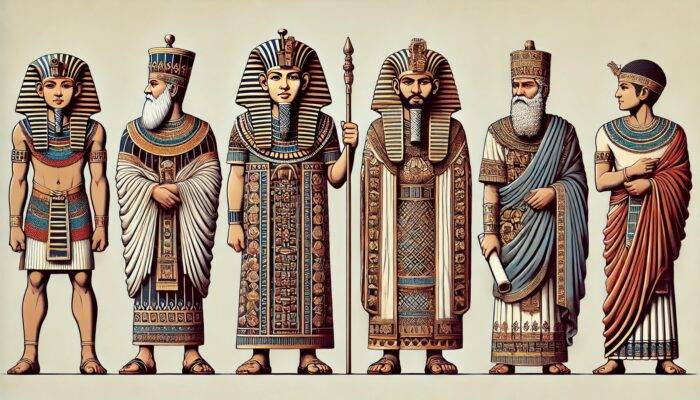The King of Israel Among the Kings of the Nations
Sometimes students of Scripture are surprised to find out that it was always God’s plan for Israel to have a king. God had promised Abraham that “kings shall come from you” (Gen 17:6). God gave a similar promise to Jacob (Gen 35:11). In fact, by the time the Pentateuch wraps up, we are expecting a powerful king of Israel who will come from Judah (cf. Gen 49:10; Num 24:17).

It should not really be that surprising that Israel would have a king. A king ruling over a kingdom was the default governmental system for the ancient Near East (ANE) nations. But, what is very surprising is the kind of king that Israel was expected to have. The king of Israel was to be of a very different sort than the surrounding nations.
The king of Egypt, for example, was thought to be the earthly embodiment of the god Horus. The king was known by titles such as “son of Re,” and was an absolute monarch with hardly any limitations. The king of Egypt also would function as the supreme judge and high priest of the religious system.
It was typical for kings in the ANE to function as a priest. The Mesopotamian kings also were viewed as divine intermediaries between the gods and men, organizing the building of temples and officiating offerings. The king was the leader in political, national, and religious matters.
The standard for the king of Israel given by Moses in Deuteronomy 17:14–20 stands in contrast to the powerful kings of the ANE world. In addition to the enshrined laws prohibiting a non-Levite from officiating as priest (cf. 2 Chron 26:16–21), the “Law of the King” (Deut 17:14–20) provides numerous limitations on the power of the Israelite king.
God is to choose the king (Deut 17:15)
It is important that Israel know God is ultimately in charge of who rules. This and the last point lead many scholars to refer to Israel as being a theocratic monarchy. Yes, there is a king, but the king is an under ruler to the True King.
The king must intentionally limit his military power (Deut 17:16)
From a logical perspective, this kind of self-regulation is a sure-fire way to die as a nation. As the de facto military leader of Israel, God commands the king to curtail his stockpile of horses because the king needs to rely on God and not on military might (cf. Ps 147:10–11).
The king must not rely on foreign alliances (Deut 17:17a)
As has been the case throughout history, kings often married into the ruling families of other nations to solidify alliances. Again, Israel’s king was forbidden from making these kinds of marriage alliances. He must remain wholly true to Yahweh, and also rely on Yahweh’s power.
The king must intentionally limit his reliance on wealth (Deut 17:17b)
Similar to the previous reasons, the king was to resist the temptation to accumulate wealth. Wealth was the means of purchasing an alliance, persuading an enemy king not to attack you, or simply flaunting your own power. Yet, the king was forbidden from pursuing wealth.
The king must familiarize himself with the Law and submit to it (Deut 17:18-20)
As noted in the first point, Israel’s king was not an absolute sovereign. He was an under-shepherd to the True King—Yahweh. Thus, one of the chief responsibilities of the king was to know and submit to the Law of God, thus serving as an example to all Israel.
Comparing Israel’s king with other kings in the ANE provides a lesson through contrast. Although the king is the most powerful individual in the nation, God wanted Israel’s king to be different. The nation was never to view itself, “like all the nations” (1 Sam 8:5). Israel was a distinct, specialized nation. Even the limited power of its king communicated a theological truth—we depend on Yahweh.